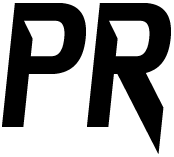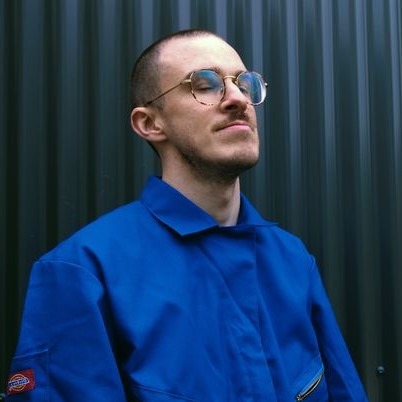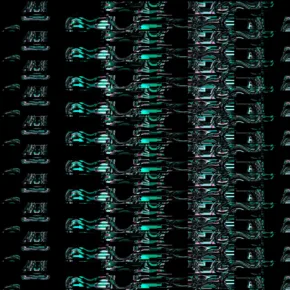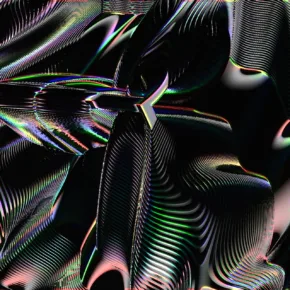What inspired you to become an artist?
I am a bit of an obsessive consumer, always trying to find new things that feel new and exciting to me. I love going down rabbit holes in culture and finding things that really resonate. Becoming an artist was the next logical step, so then I could join in with the conversation.
How would you describe your music style or genre?
It changes month by month as I get into new stuff. At the moment I’m making tracks that blend garage, breaks and dubstep. There’s lots of new artists finding new ground between these genres which I’m finding really inspiring.
Can you share a bit about your musical journey and how it has evolved over the years?
I grew up playing the guitar, and then saved up and got my first synthesiser when I was 15. It was mainly just experimenting and making weird noises. I don’t think it was until a started a band with my housemate Connor in my late twenties that I realised I could actually make songs and perform them live. That unlocked something in my head. I went from seeing myself as a music fan who dabbled in making music, to a musician. It seems like a small thing but that change in how I viewed myself gave me the confidence and motivation to create and release music on my own.
What are some of your biggest musical influences?
I’m a massive Flying Lotus fan because he creates music without much regard for how it fits into existing genres, which I find really inspiring. He has a very distinctive style despite making such a broad range of music. He also has amazing taste, everything on his Brainfeeder label is great.
Tell us about your creative process when producing a new track or mix.
I’m a member of MESS, so one day a week I’ll go down there and jam on synthesisers for four hours, recording the whole thing and adding it to a big folder. At home I’ll chop up some breaks and build up my drums. I’ll then chop up one of the synth jams and keep fiddling around until it all works together. I find that the creative process is a lot smoother if you dedicate time to sound design and save your creations to revisit later. That way you are hearing the sounds for what they are, rather than using something out of obligation because you’ve just spent ages making it.
Can you share any memorable experiences or stories from your live performances?
I competed in the beat battles at Section 8. They are really fun but incredibly nerve wracking because you are against 16 other producers, and the crowd are watching you and judging your music. In the first one I got called up first and went out in the first round. The second time around I prepared myself with a USB of new songs and managed to come third, losing to the eventual winner. It was the first time I’d played my music to so many people and it was really inspiring to see so many people dancing and enjoying it.
How do you feel the music scene has changed over the years, and what impact has it had on your work?
For a while dance music became very split by genre. You’d get DJs playing pretty much the same style all night. I think there’s been a shift recently towards more of an anything goes attitude. This has made me more confident to just trust my instincts and stick to making a broad range of styles.






